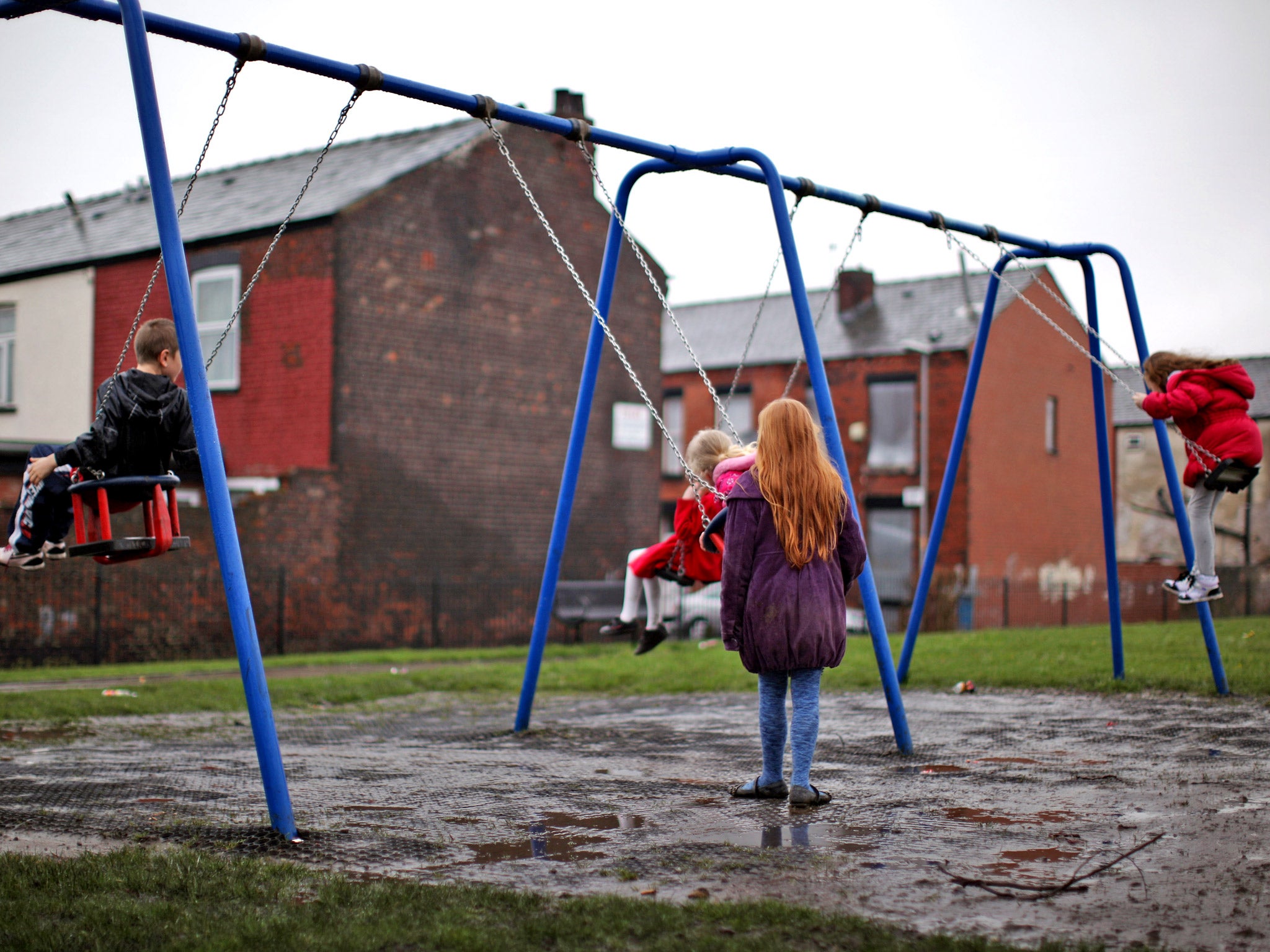Spending cuts hit poorest parts of England and Scotland much harder than affluent areas

Your support helps us to tell the story
From reproductive rights to climate change to Big Tech, The Independent is on the ground when the story is developing. Whether it's investigating the financials of Elon Musk's pro-Trump PAC or producing our latest documentary, 'The A Word', which shines a light on the American women fighting for reproductive rights, we know how important it is to parse out the facts from the messaging.
At such a critical moment in US history, we need reporters on the ground. Your donation allows us to keep sending journalists to speak to both sides of the story.
The Independent is trusted by Americans across the entire political spectrum. And unlike many other quality news outlets, we choose not to lock Americans out of our reporting and analysis with paywalls. We believe quality journalism should be available to everyone, paid for by those who can afford it.
Your support makes all the difference.Spending cuts have hit the poorest parts of England and Scotland much harder than more affluent areas, according to research published on Thursday.
The Joseph Rowntree Foundation (JRF), which analysed the 30 per cent real terms cut in local government spending between 2008 and 2015, said the North and Midlands are suffering more than the south, with deprived areas left about £100 per person worse off.
Researchers warned that cash-strapped councils will end up serving only the neediest fraction of the population. "As a result, the willingness of those who do not rely on council services for the majority of their needs to pay for council services relied on almost exclusively by the poor could be undermined," the report added.
John Low, the JRF’s policy and research manager, said: "Unless we can muster the national will to correct or mitigate the unacceptable divergence of resources between more and less affluent authorities, we are slowly but inexorably creating a more divided society."
The largest factor was the reduction, scrapping or merging of many specific central government grants, which targeted deprived areas. Councils in poor areas saw their spending power drop by 21 per cent, while in affluent areas it fell by 16 per cent.
Town hall spending on education fell in England because money was channelled into the Government’s flagship academies policy. Culture, the environment and planning saw larger cuts, along with transport and housing.
The divide was confirmed in a separate report by the Audit Commission spending watchdog published on Thursday, which said that almost half (49 per cent ) of councils covering the 20 per cent most deprived areas faced cuts of more than 15 per cent since 2010. Fewer than one in ten local authorities (eight per cent) of authorities in the best-off areas suffered reductions on such a scale, it said.
Brandon Lewis, the Local Government Minister, insisted that deprived areas continue to receive and spend far more money per household than other parts of the country. “Rather than the doom and gloom peddled by the JRF, the latest independent polling shows that the public are more satisfied with town hall services than ever before,” he said.
Join our commenting forum
Join thought-provoking conversations, follow other Independent readers and see their replies
Comments